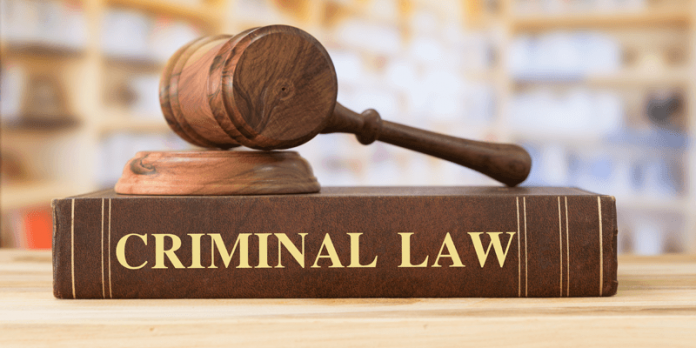This article is written by Gyaaneshwar Joshi, a student of the Faculty of Law, Jamia Millia Islamia, New Delhi. This article deals with the rising trend of criminalisation in law-making bodies and the role of the higher judiciary in working for this issue.
Table of Contents
Introduction
India is a vibrant democracy with people electing their representatives at several levels beginning from local bodies to the Parliament. When it comes to the representation of people in the Parliament and state legislatures, the quality of candidates contesting elections is of even more significance because the elected representatives represent us in our legislative institutions and make laws that govern our society.
The issue of candidates facing criminal charges getting elected to the Parliament and state legislative assemblies is often raised in public debates. These issues mainly come to the focus when discussions on electoral reforms take place. Several petitions have been filed before the Supreme Court by individuals to direct political parties to not field candidates with criminal antecedents. Currently, cleansing the polluted stream of politics is the immediate concern of the government’s legislative branch, which was also instructed by the Supreme Court many times as the nation continues to wait and is losing patience.
Rising trend of criminal cases against lawmakers : a concern
The number of lawmakers facing serious criminal charges has more than doubled in the last decade. According to the Association of Democratic Reforms (ADR) reports, nearly half (43%) of the winning candidates elected to the Lok Sabha in 2019 have criminal charges against them, which shows a 26% increase compared to the members elected in 2014.
While looking at the report published by ADR in collaboration with the National Eye Watch, a total of 543 members were selected in the 2009 Lok Sabha elections, in which 162 (30%) had declared criminal cases registered against themselves, whereas 76 (14%) declared charges under serious criminal cases. Similarly, in the 2014 Lok Sabha elections, a total of 542 members were selected, in which 185 (34%) winners have declared criminal cases against themselves and 112 (21%) charged with serious criminal cases.
The figure is far more alarming when it comes to the results of the 2019 Lok Sabha elections where a total of 539 candidates were elected to the Lok Sabha and 233 (43%) winners declared criminal charges against themselves with 159 (29%) accused of serious criminal charges, including rape, murder, kidnapping, attempt to murder, crimes against women, etc.
The writ petition of Ashwani Kumar Upadhyaya v. Union of India and others (2016) provides comprehensive details of 4122 cases pending against sitting and former MPs and MLAs. Among the 4122 cases, 1991 cases are those in which even charges have not been framed. According to the petition, there is a total 2324 number of cases pending against sitting legislators (both MPs and MLAs) and 1675 are against former legislators.
Calculating figures back from the 2014 elections, there has been an increase of 26% in 2019 in the numbers of MPs who got elected to the Lok Sabha and have criminal cases against them. The details of the 2019 Lok Sabha members shows nearly 29% of cases are related to rape, murder, attempt to murder, or crime against women. 11 winners have murder charges against them including Pragya Singh Thakur, an MP from Bhopal constituency who is accused of terror attacks in connection with the 2008 Malegaon Blast case. Whereas, the member from the Idukki constituency in Kerala, Dean Kuriakose, has declared 204 criminal cases against him, including culpable homicide, robbery, criminal intimidation, etc. Moreover, 29 winners have declared cases related to hate speeches.
Laws in India against the criminalisation of politics
Indian laws bar people from contesting an election if they have been convicted while in office for an offence with imprisonment of two or more years (with exceptions). Article 327 of the Constitution of India empowers the Parliament to make provisions for elections to legislative subjects and provisions with respect to all matters related to the elections of either house of Parliament or the Legislature of a State.
There are two essential Articles in the Constitution that give powers to the Parliament to disqualify any member of either house of the Parliament or state legislative assemblies with a bad profile or criminal records. There are certain grounds mentioned in both the Articles for disqualification of membership from the legislative bodies:
- Article 102: This Article deals with the disqualifications of the members from either House of Parliament on various grounds as mentioned under the Article.
- Article 191: This Article deals with the disqualifications of the members of the Legislative Assembly or Legislative Council of a State if they fall under the category as mentioned under the Article.
These Articles are in consonance with the Representation of People Act, 1951, which provides several grounds regarding qualifications and disqualifications for membership of the House of Parliament and the Houses of Legislature of each State.
Provisions under the Representation of People Act, 1951
The Representation of People Act, 1951 is a significant Act that the Provincial Government enacted before the first general election in 1951. Its provisions are ‘absolutely specific’ on the grounds to disqualify members of both the Parliament and State Legislature. These grounds for disqualification of a member are as follows:
- Section 8(1): A person convicted for promoting enmity between different groups on the grounds of religion, or charged with offences like rape, terrorist acts, insulting the national flag, etc., stands disqualified for six years on mere conviction.
- Section 8(2): A person convicted for hoarding, dowry offences, etc., incurs disqualification if sentenced to at least six months for the offences. The bar continues for six years after release from jail.
- Section 8(3): A person convicted of any other offence incurs disqualification if sentenced to an imprisonment of not less than two years. The disqualification continues till six years after release.
- Section 8(4): Protects sitting MPs and MLAs from being disqualified from the above provisions. If they file an appeal within three months, they can continue as a member of the house till the completion of the term or till the decision on appeal, whichever is earlier. [Repealed]
The provision under Section 8(4) of the Act, which provides respite to convicted MPs or MLAs, was struck down by the Supreme Court bench led by Justice A.K. Patnaik on 10 July 2013. In the case of Lily Thomas v. Union of India (2013), the Court held that if a member is convicted for an offence with imprisonment of two or more years, they shall remain disqualified for that period of imprisonment and further for six years after release. After passing the judgment, Lalu Prasad Yadav faced immediate disqualification as a member of the Lok Sabha because earlier, he had been sentenced to five years of imprisonment in the fodder scam.
Decriminalising politics : a look at the legal journey
People hope that the judiciary will show the way forward with regard to preventing candidates facing criminal charges from contesting elections. In various judgments passed by the Supreme Court on these matters, the Court left it to the Parliament to legislate on this subject. The Court concluded that it was not within its powers to disqualify politicians facing criminal charges from contesting elections. It raises a serious doubt whether the Supreme Court in any way helps in making politics clearer because the chances of the Parliament acting fast on this issue are low.
The 244th report of the Law Commission of India had pointed out that political parties are chiefly responsible for rising criminalisation in politics. Currently, no political party is free of this problem. Muscle power along with money power is used by all political parties to maximise electoral gains. In such a scenario, it would be difficult to ban candidates with criminal records from contesting elections.
The Supreme Court directed political parties and the Election Commission (EC) to comply with the directions to ensure that persons facing serious criminal cases do not enter into the political stream.
- 18 November 2011: The Public Interest Foundation, an NGO, filed a petition before the Supreme Court to disqualify candidates with serious criminal cases pending against them. The petition prayed to expand the grounds laid down under Articles 102 and 191 which provide the grounds for disqualification of members of the Parliament and State Legislature.
- 16 December 2013: The Centre tells the Supreme Court that the Law Commission of India is considering de-criminalisation of politics and electoral reforms. Therefore, the Supreme Court requested the Law Commission that disqualification should only happen after conviction or framing of charges by a trial court.
- February 2014: The Law Commission submitted the 244th report dealing with ‘electoral disqualifications’. The Commission recommended disqualification of candidates against whom charges have been framed with respect to offences punishable with imprisonment of five years or more.
- March 2014: The Supreme Court ordered trial courts to hold a day-to-day trial in criminal cases pending against sitting MPs and MLAs and complete it within one year from framing of charges.
- 9 August 2018: The Constitutional Bench headed by former Chief Justice of India, Deepak Misra, began hearing the petitions filed before the Supreme Court. The Bench ordered that candidates contesting election should disclose details of pending criminal cases against them in the form provided by the Election Commission. The Court further directed that all political parties should mandatorily publish all the information about candidates with criminal antecedents on their websites and in widely circulated newspapers and electronic media. On the directions of the Supreme Court, the Election Commission issued a notification amending form 26, which is the affidavit submitted by candidates while filing nomination papers. The amended form mandated the declaration of pending criminal cases.
Earlier in 2017, the two-judge bench of the Supreme Court had instructed the government to set up twelve special courts across eleven states that particularly deal with cases related to elected representatives.
- 11 March 2019: Advocate and BJP member Ashwini Kumar Upadhyay filed a contempt petition in the Supreme Court complaining that the government and the Election Commission (EC) failed to take steps for the decriminalisation of politics. The petitioner prayed that political parties should not allow candidates with criminal antecedents to contest elections.
- 13 February 2020: The Supreme Court took a strict stand with regard to criminalisation in politics. The Court directed all the parties to upload details of pending criminal cases against polling candidates on their websites.
- August 2021: The Supreme Court in the contempt petition of Brajesh Singh v. Sunil Arora & Ors. (2020) modified the decision passed on 13 February 2020 and mandated all political parties to publish criminal antecedents of candidates within 48 hours of their selection. In view of this judgment, the Court imposed a fine against several political parties in Bihar elections for not disclosing criminal antecedents of candidates contesting polls. The fine of Rs. 5 Lakh was imposed on CPI (M) and NCP and Rs. 1 Lakh fine on BJP, INC, Janta Dal, CPI, RJD and LJP.
Criticism
The Supreme Court orders paved the way for transparency in an important aspect. Now, all the political parties will have to publicise the reasons for selecting candidates with criminal records. However, the organisations and public argued that these orders may not change much on the ground because all details to be published deal with pending cases. There is apprehension that the orders could be misused and false cases might be filed.
Also, the candidate disqualification in the Representation of People Act, 1951 can be triggered only after conviction. Therefore, people argued that the Parliament needs to frame a law whereby disqualification shall take place immediately after the framing of charges against the legislator and consist of proper legal safeguards.
Landmark judgments on decriminalising politics
Dinesh Trivedi v. Union of India (1997)
The Supreme Court held that the criminalisation of politics is a danger to the sacredness of democracy. The Court noted that crime syndicate is growing in the Indian society and nexus between politicians, bureaucrats, and criminal elements is on the rise which is adversely affecting the free and fair electioneering process in the country.
Union of India v. Association of Democratic Reforms (2002)
The Supreme Court has mandated all political parties to disclose information related to criminal antecedents, educational qualifications, and personal assets of a candidate contesting elections. The Court held that the right to know antecedents including past crimes is a fundamental right under Article 19(1)(a) of the Constitution and will help in a greater aspect for the survival of the judiciary.
People’s Union for Civil Liberty v. Union of India (2003)
The Supreme Court held that each voter has a fundamental right to know relevant information about the candidate. The Court struck down Section 33B of the Representatives of People Act, 1951 for being unconstitutional on the grounds of violating Articles 19(1)(a) and 19(2) of the Constitution provided to the Indian voters. The repealed Section allowed candidates not to be compelled to disclose any information about themselves other than their criminal records.
Lily Thomas v. Union of India (2013)
The Supreme Court struck down Section 8(4) of the Representation of People Act, 1951, which gave lawmakers three months to appeal to the higher Court and get a stay on the conviction and sentence.
People’s Union for Civil Liberty v. Union of India (2013)
The Supreme Court introduced the NOTA (None Of The Above) option in EVMs and recognised ‘negative voting’ as a constitutional right of a voter.
Public Interest Foundation v. Union of India (2018)
The Supreme Court decided that it cannot disqualify candidates with criminal antecedents from contesting elections. Therefore, the Court recommended the Parliament should make laws to curb decriminalisation in politics. The Court further directed the Election Commission to ensure that the contesting candidate furnishes information on the party’s website or the newspaper whether the candidate has been convicted, acquitted, or discharged of any criminal offences in the past.
Conclusion
Majorly whatever progress made in curbing criminalisation of politics has been through the initiative of the Supreme Court and the Election Commission. However, the Parliament needs to amend the Representative of People Act, 1951, which deals with the disqualification of candidates against whom charges have been proved in the court for serious offences. Several laws and court judgments have not helped much due to their lack of enforcement.
Decriminalisation of politics cannot be achieved by judicial fight alone. It requires strong political will and, most importantly, a behavioral change amongst the Indian voters.
References
- https://www.livelaw.in/top-stories/political-parties-must-publish-criminal-antecedents-of-candidates-within-48-hours-of-their-selection-supreme-court-modifies-earlier-direction-179217
- https://www.thehindu.com/elections/lok-sabha-2019/43-newly-elected-lok-sabha-mps-have-criminal-record-adr/article27253649.ece
- https://factly.in/voters-right-to-know-trajectory-of-law-on-the-disclosure-of-candidates-criminal-antecedents/
- https://www.thehindu.com/news/national/supreme-court-orders-parties-to-publish-criminal-history-of-candidates/article30808148.ece
Students of Lawsikho courses regularly produce writing assignments and work on practical exercises as a part of their coursework and develop themselves in real-life practical skills.
LawSikho has created a telegram group for exchanging legal knowledge, referrals, and various opportunities. You can click on this link and join:
https://t.me/joinchat/J_0YrBa4IBSHdpuTfQO_sA
Follow us on Instagram and subscribe to our YouTube channel for more amazing legal content.
 Serato DJ Crack 2025Serato DJ PRO Crack
Serato DJ Crack 2025Serato DJ PRO Crack











 Allow notifications
Allow notifications


